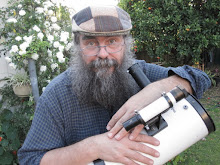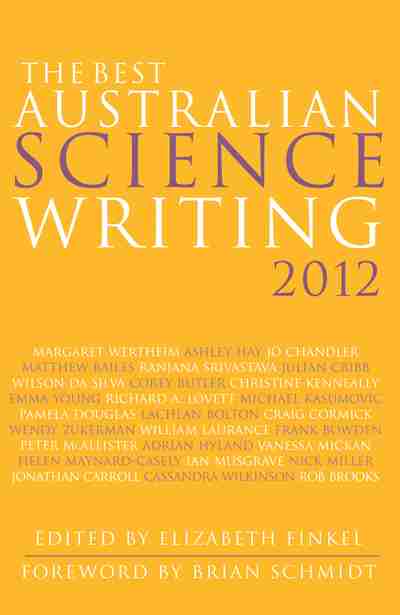Thursday, July 27, 2006
Speaking of Tides
Phil Plait's comment on the inncorect tide answers in the blogthings quiz brought to mind a radio interview I heard while ferrying the kids to an evil fast food establishment. The local ABC radio was interviewing the long-long-long range forcaster Ken Ring*, who claims to be able to predict the weather up to a year in advance. I was listening with half an ear to some highly confident forcasts when he claimed that a certain date would be windy beacuse the Moon was at perigee, when it was closest to the Earth. Now, when the Moon is at perigee there will certainly be a bit more tidal force than at apogee (those of you with a handy access to calculators may work this out for yourself), but will this cause more wind? I can't see how (Bad Astronomer to the White Courtsey phone please).
He also claimed that the Full Moon cleared cloud, and that after 10 pm on the night of a full Moon the sky will be prisitine and clear. Now, he may have meant to say that there is a statistical association between full Moons and clear skies, but I've watched enough cloudy skies on nights of the full Moon to seriously doubt this. Unfortunately, there is no good public cloud cover database for Australia, and none that covers night time, but by comparing the 3 pm before the full moon rose vs the 9 am after the full Moon sets as a proxy for cloud cover after 10:00 pm, it looks like full Moon nights are just as likley to be cloudier, or no different, than they are to be clearer (comparing 6 months of data from weather stations in Adelaide and Melbourne, eg see here) . Also, on nights of the full Moon where cloud did clear in Adelaide, it didn't clear in Melbourne.
So from this limited proxy data set it looks like the full Moon does not clear cloud. Does anyone have access to a decent night time cloud cover data set that can be correlated with Moon Phase?
Mr Ring has some rather dubious claims for a lunar-weather connection on his web site, with the usual claims that the Establishment is supressing alternative views, plus some rather strange ideas on global warming (apparently it can't happen becuase carbon dioxide is heavier than bulk air. Yes, really), but as a confirmed experimentalist I have a hankering to test the "Moon-clearing cloud" hypothesis.
* He claimed that most of Melbourne's July rain might be in the 5 days leading up to July 23rd, for example, but that was in fact the time of lowest rainfall in Melbourne. Also compare his Sydney predictions with the actual Sydney data.
He also claimed that the Full Moon cleared cloud, and that after 10 pm on the night of a full Moon the sky will be prisitine and clear. Now, he may have meant to say that there is a statistical association between full Moons and clear skies, but I've watched enough cloudy skies on nights of the full Moon to seriously doubt this. Unfortunately, there is no good public cloud cover database for Australia, and none that covers night time, but by comparing the 3 pm before the full moon rose vs the 9 am after the full Moon sets as a proxy for cloud cover after 10:00 pm, it looks like full Moon nights are just as likley to be cloudier, or no different, than they are to be clearer (comparing 6 months of data from weather stations in Adelaide and Melbourne, eg see here) . Also, on nights of the full Moon where cloud did clear in Adelaide, it didn't clear in Melbourne.
So from this limited proxy data set it looks like the full Moon does not clear cloud. Does anyone have access to a decent night time cloud cover data set that can be correlated with Moon Phase?
Mr Ring has some rather dubious claims for a lunar-weather connection on his web site, with the usual claims that the Establishment is supressing alternative views, plus some rather strange ideas on global warming (apparently it can't happen becuase carbon dioxide is heavier than bulk air. Yes, really), but as a confirmed experimentalist I have a hankering to test the "Moon-clearing cloud" hypothesis.
* He claimed that most of Melbourne's July rain might be in the 5 days leading up to July 23rd, for example, but that was in fact the time of lowest rainfall in Melbourne. Also compare his Sydney predictions with the actual Sydney data.



 Click to read about or order
Click to read about or order Click to read about or order
Click to read about or order Click to read about or order
Click to read about or order Click to read about or order
Click to read about or order




